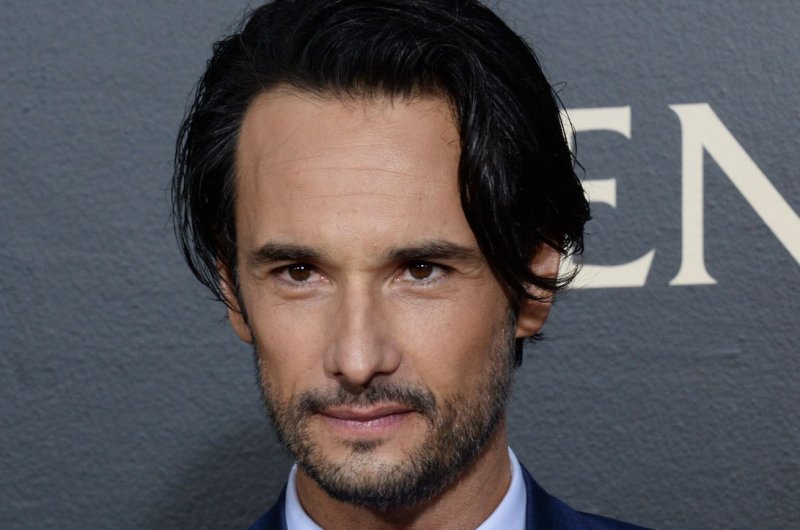1 of 4 | Rodrigo Santoro stars in the Brazilian drama "7 Prisoners." File Photo by Jim Ruymen/UPI |
License Photo
LOS ANGELES, Nov. 11 (UPI) -- Rodrigo Santoro said his Brazilian movie, 7 Prisoners, premiering Thursday on Netflix, exposes the issue of modern-day slavery in Brazil.
Santoro, 46, plays Mr. Luca, a junkyard boss in Sao Paolo who hires young men for a job, and then holds them prisoner while they work off their debt to him associated with the benefits he provides.
"I have heard about modern day enslavement before," Santoro told UPI in a Zoom interview. "I'm sad to say it's very, very real. We have 40 million people as we speak in this very situation around the world today."
The film follows Mateus (Christian Malheiros) and his friends, who go to work for Mr. Luca. Their job is to sort metal in a junkyard for deliveries.
After working for a week and still not being paid, Mateus is surprised to learn Mr. Luca is charging them for housing, food, transportation and other built-in expenses he is making them work off. Santoro said Mr. Luca has no illusions that he's a benevolent boss.
"He clearly represents the oppressor here," Santoro said. "He lives off the exploitation of his workers, but he's very aware of the terrible things he does."
Santoro called Mr. Luca "not the villain, but the antagonist in the film." 7 Prisoners delves deeper into his organization to show to whom he answers, but Santoro said that neither he nor director Alexandre Moratto wanted to make Mr. Luca sympathetic.
"We were very careful not to try to redeem the character because I don't think he has redemption," Santoro said. "There's a bigger picture of which he's a product of. You understand different levels of power structures."
When Mr. Luca thwarts Mateus's escape attempts, Mateus decides to ingratiate himself to him and learn the business. Santoro said training the next exploitive boss is how the cycle of modern-day enslavement continues.
"He's thinking I'm giving a chance to this kid so he can get out of this vulnerability and get out of this terrible place," Santoro said. "In a way for Luca, he thinks he's helping him and it's cyclical."
Santoro began to work in Brazilian television and film in 1993. He also appeared in Hollywood movies like 2003's Charlie's Angels: Full Throttle and 2006's 300, and the TV series Lost.
Even when Hollywood success came, Santoro continued to work in Brazil.
"It's very important for many reasons to be working here in my own language," Santoro said. "In a way also helping to represent our culture being Latin and talking about our issues, so it's a conscious choice to be like that."
300 was a global hit. Santoro said the notoriety 300 brought helped his Brazilian projects gain financing more easily.
Santoro reprised his role as Persian king Xerses in 300: Rise of an Empire. He continued to take roles in Hollywood movies like the Ben-Hur remake and HBO's Westworld series while dividing his time between Brazilian projects.
"Of course, it did open doors," Santoro said. "When it's international like 300, it does change your status and you get more opportunities. People start to trust more in what they call the market value."
A potential fourth season of Westworld is shrouded in mystery. HBO renewed the series for Season 4, and it is in production, but cast members like Santoro cannot admit they return.
"I don't know where it is right now, but I did have a conversation, and I'm waiting," Santoro said. "I've only had great memories about it, so yes, I would go tomorrow."















